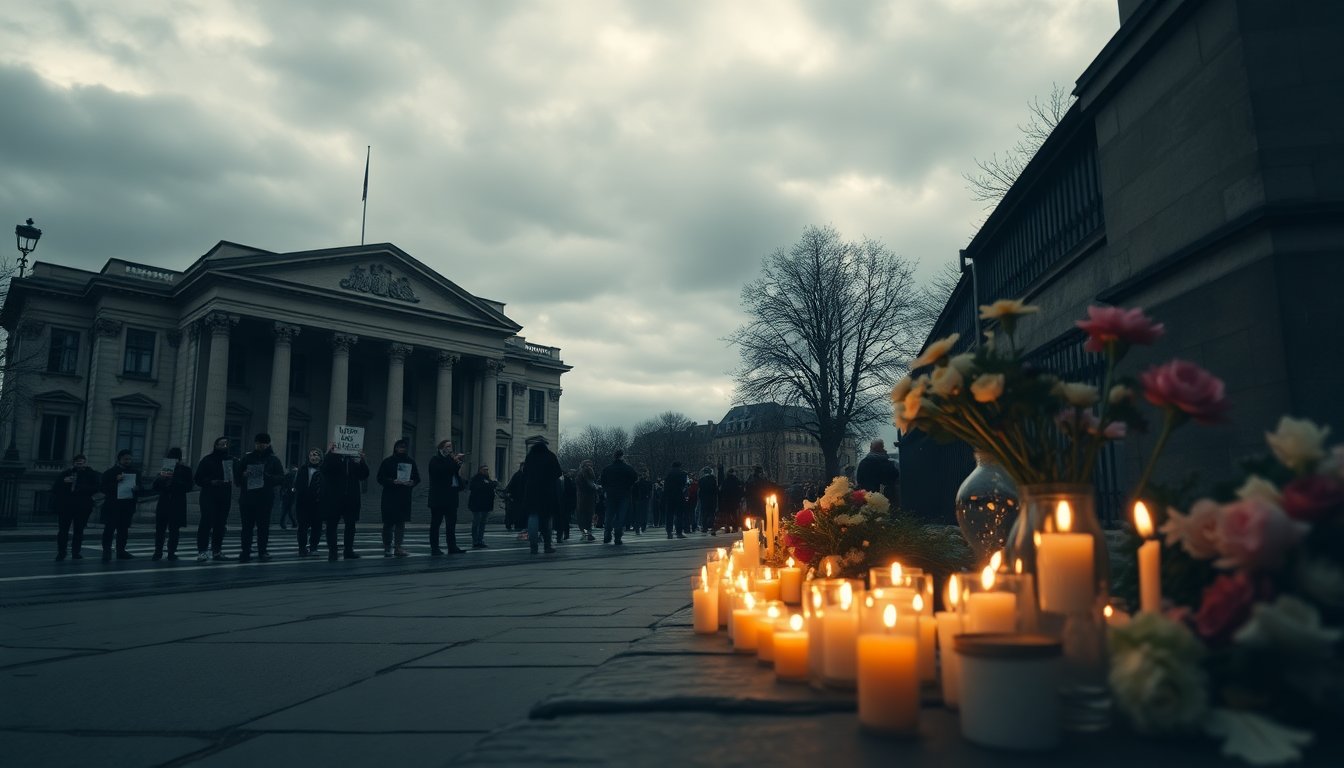Table of Contents
The case of Lola Daviet, a 12-year-old girl killed in Paris in October 2022, has become a focal point of outrage and political discourse in France. The discovery of her body stuffed into a plastic trunk shocked the nation and raised questions about safety and immigration policies. The trial of Dahbia Benkired, the woman accused of this crime, is set to begin, as the public awaits justice.
This case extends beyond the murder; it has ignited a discussion about how such tragedies can be politicized. Far-right political factions in France have seized upon this incident, alleging it exemplifies failures in the country’s immigration system.
The shocking details of Lola’s abduction
Lola was last seen after leaving her school, a short distance from her home in the 19th arrondissement of Paris, on a Friday afternoon. Her parents, caretakers of the building, quickly recognized something was amiss when she did not return as expected. Security footage captured her encounter with Benkired, who was temporarily residing in the area.
Within an hour and a half of Lola’s disappearance, surveillance cameras recorded Benkired in the building’s lobby, surrounded by bags and a large trunk. This footage was critical in piecing together the timeline leading to the tragic outcome.
The aftermath of the crime
After Lola’s body was discovered, the nation was plunged into grief and horror. The case drew attention not only because of its brutality but also due to the alleged circumstances surrounding Benkired’s status in France. Reports indicated that she had overstayed her visa and had been ordered to leave the country shortly before the incident.
The political ramifications were immediate. Key figures from the far-right attempted to leverage this tragedy to highlight perceived weaknesses in the nation’s immigration policy. They argued that her murder was a direct consequence of the government’s failure to enforce immigration laws effectively.
Political exploitation and public response
In the wake of the murder, the Rassemblement National, led by Marine Le Pen, quickly capitalized on public outrage. They framed the narrative around the supposed dangers posed by illegal immigrants, linking Benkired’s background to the crime. This rhetoric prompted significant criticism, including from government officials who urged more respectful discourse.
The then Justice Minister, Éric Dupond-Moretti, condemned the actions of those politicizing Lola’s death, accusing them of exploiting her tragedy for their gain. He called for a focus on justice rather than political maneuvering, emphasizing that Lola’s memory should not be reduced to a political talking point.
Legal proceedings and potential consequences
Benkired faces serious charges, including murder, aggravated rape, and torture. If convicted, she could be sentenced to life imprisonment, a fitting consequence for such a grisly act. The trial is expected to run for several days, with a verdict anticipated shortly thereafter.
The legal proceedings will address not only the crimes against Lola but also broader societal issues surrounding crime, justice, and immigration in France. As the trial unfolds, it is likely to remain a topic of heated debate, underscoring the intersection of crime and politics.
A community in mourning
This case extends beyond the murder; it has ignited a discussion about how such tragedies can be politicized. Far-right political factions in France have seized upon this incident, alleging it exemplifies failures in the country’s immigration system.0
This case extends beyond the murder; it has ignited a discussion about how such tragedies can be politicized. Far-right political factions in France have seized upon this incident, alleging it exemplifies failures in the country’s immigration system.1


